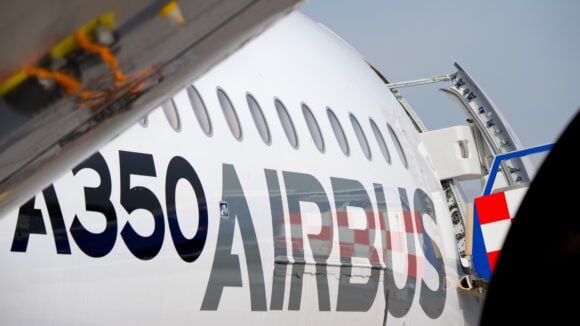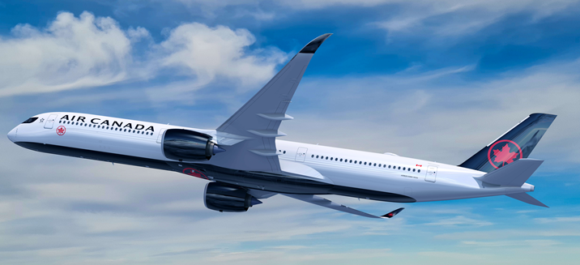
777 004 scaled
Lufthansa expects its second-quarter operating profit to exceed that of 2019 and the full-year profit to be well above 2022 levels, based on strong demand for air travel. The airline group still produced a loss in Q1, but this was lower than in 2022. SWISS was the only airline within the group to report a profit. Lufthansa Group positive of record-summer.
CEO Carsten Spohr and CFO Remco van Steenbergen were happy with the outcome of Q1, which produced a consolidated Adjusted EBIT of €-273 million compared to €-577 million in the same quarter last year. The net loss was €-467 million compared to €-584 million. Revenues improved to €7.017 billion from €5.002 billion, of which €5.708 billion were traffic revenues. Business booking revenues are back to seventy percent of pre-pandemic levels.
But operating expenses increased by 33 percent to €7.946 billion due to inflation, higher staffing costs, and the effects of some strikes and industrial actions in Germany and Austria. The operating cash flow was €1.6 billion. All airlines carried 22 million passengers, up nine million from Q1 last year, at a 79.7 percent load factor.
By airline
Parent airline Lufthansa reduced its Adjusted EBIT to €-366 million from €-715 million, thanks to revenues that were 74 percent higher at €3.052 billion. The airline, including Eurowings Discover and Air Dolomiti, carried 11.3 million passengers. Operating expenses were up 41 percent due to volume, price, and currency-related expenses.
SWISS and Edelweiss produced a €77 million Adjusted EBIT compared to €-62 million last year, making it the only airline within the group to be profitable in Q1. Revenues improved by sixty percent to €1.197 billion as the airline carried 3.7 million passengers. SWISS says it benefitted from high schedule stability, an improved cost base, and a strong home market. CFO Markus Binkert said that the results confirm that the airline is now structurally sound and regained pre-pandemic liquidity levels.
Austrian Airlines still produced a €-73 million Adjusted EBIT, but that was better than the €-109 million the year before. Revenues almost doubled to €400 million flat thanks to increased traffic and higher unit revenues. The airline carried 2.3 million passengers, which is more than the 1.9 million in Q1 2020. Brussels Airlines reported an Adjusted EBIT of €-43 million, down from €-62 million, thanks to 78 percent higher revenues at €78 million.
Leisure airline Eurowings ended Q1 with an Adjusted EBIT of €-103 million, an improvement over €-163 million last year. Revenues were up by 76 percent to €327 million. The carrier saw a strong demand for leisure and tourist travel and increased capacity accordingly, which will continue to do this summer. The airline will introduce six Airbus A321ceo’s it gets from Lufthansa, plus four A321neo’s at the end of the year.
Lufthansa Cargo was profitable at €151 million, but this was down on the €495 million Adjusted EBIT of last year. Revenues were down by thirty percent to €823 million, but this was expected as demand for air cargo has come down after the strong levels during the Covid crisis. Lufthansa Technik also saw a higher Adjusted EBIT to €135 million, up from €129 million, with revenues up by sixteen percent to €1.537 billion as demand for aircraft maintenance and repairs increased. Catering group LSG, which is to be sold later in Q3, reported an Adjusted EBIT of €-6 million versus €-14 million despite forty percent higher revenues at €523 million.
Record summer is ahead
Strong bookings indicate Lufthansa will have a record summer this year. To safeguard operating stability, Spohr said that the airline is prepared to forego efficiency and productivity by some fifteen percent and will operate at 82 percent capacity of 2019 in Q2. The full-year capacity will be kept at 85-90 percent, which is also restricted by airport capacity. But from 2024 the airline group expects to operate at 2019 levels again which will help to improve unit costs.
The Easter holidays have been the first major test for the airline and airport system, but Spohr was happy to report that the test was passed successfully despite a doubling of the number of passengers to four million. Spohr earlier expressed concerns about capacity at its major hub in Frankfurt, but the airport seems ready to accommodate the higher passenger levels.
Yields are expected to be up by 25 percent in Q2 over 2019 and Adjusted EBIT above the €754 million recorded in 2019. For the full year, Adjusted EBIT should be significantly above last year’s €1.509 billion with free cash flow significantly positive. Net Capex will be between €2.5 and €3.0 billion. For 2024, Steenbergen guided an Adjusted EBIT margin of at least eight percent.
Lufthansa Group ended the quarter with €10.5 billion in liquidity and €6.7 billion in net debt, plus €2.0 billion in pension liabilities. While LSG Europe has now been sold, Lufthansa is still looking for a buyer for LH Technik who wants to take a minority stake. Steenbergen didn’t rule out that Lufthansa might opt for an IPO. A full divestment of Air Plus business provider is also still planned.
Views: 9



